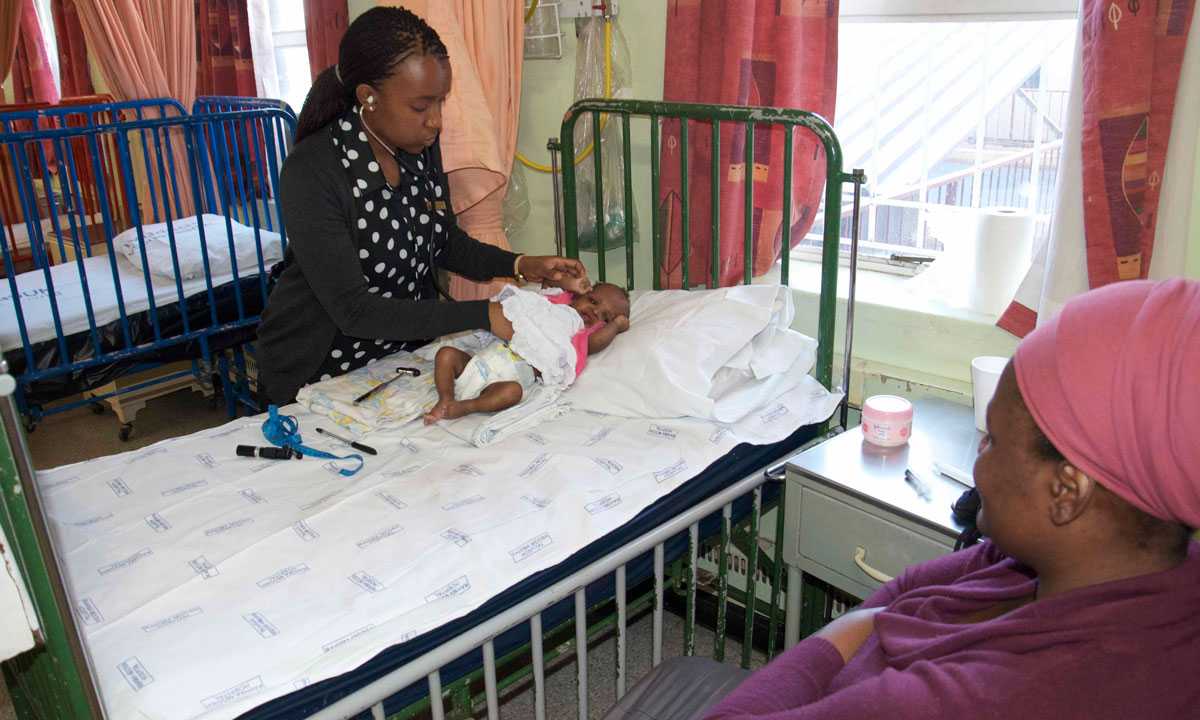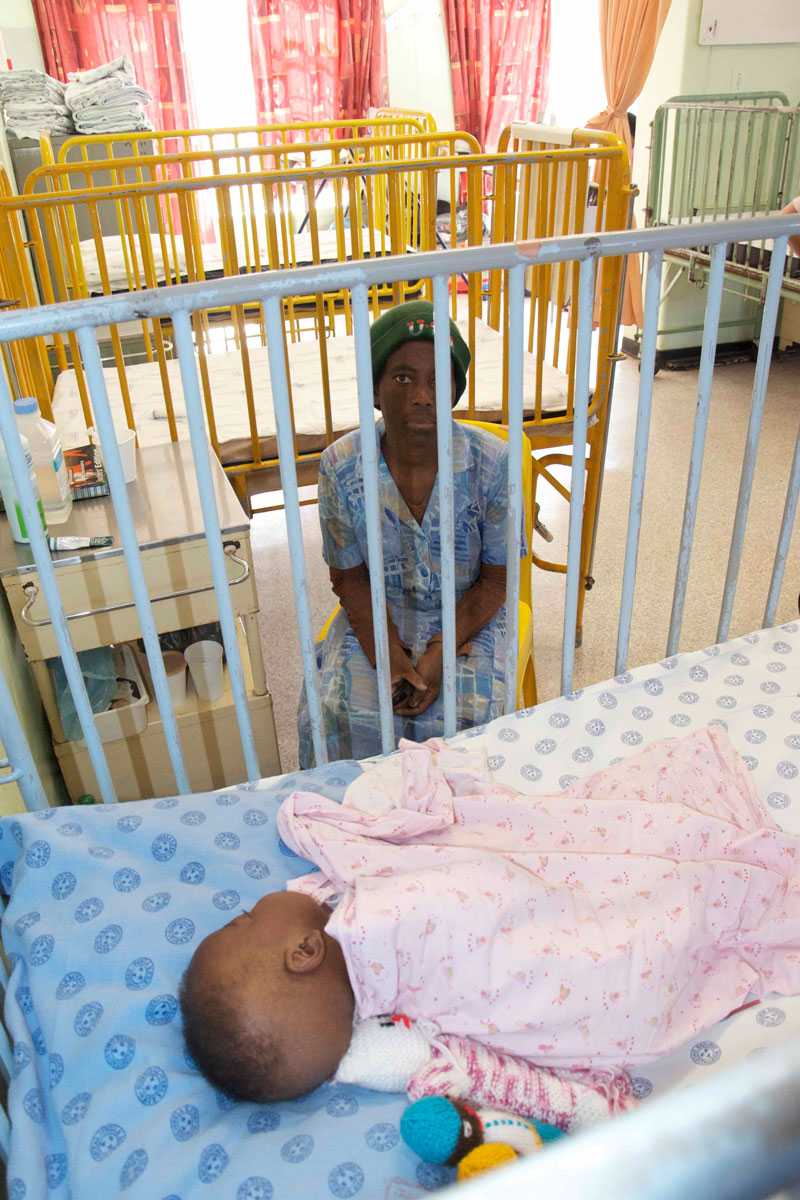CDC's HIV/AIDS Care and Treatment Programs in South Africa:
Prevention of Mother-To-Child HIV Transmission
Improving Health for Mothers and Their Babies

Prevention of mother-to-child HIV transmission (PMTCT) interventions are pivotal role in protecting vulnerable infants from acquiring HIV. In South Africa, about 254,000 HIV-infected pregnant women are identified and provided with antiretroviral therapy annually.
With early infant diagnosis (EID), infants born to HIV-infected mothers can be tested at six weeks of age and receive appropriate care and treatment. Without treatment, most HIV-infected infants die before reaching the age of two.
The U.S. Centers for Disease Control and Prevention in South Africa (CDC South Africa), through its Global AIDS Program (GAP), works hand-in-hand with South Africa's National Department of Health (NDOH) to enhance PMTCT services by assisting with policy reviews, trainings, and curriculum development.
Switch in PMTCT Policy and Guidelines

Initially, South Africa's PMTCT program offered voluntary counseling and testing services to pregnant women. In February 2008, the policy shifted to provider-initiated testing and counseling. All pregnant women are screened for HIV and syphilis. As of April 2008, the PMTCT dual therapy program came into effect countrywide. This has been a much anticipated programme as it replaced the single therapy program. With the dual therapy, HIV transmission to infants could fall to 5% or even lower.
Clinics provide counseling to pregnant women to improve maternal nutrition and safe feeding techniques for HIV-exposed infants. Formula is provided to mothers who decide not to breast feed. According to the Medical Research Council of South Africa, 60% of HIV-infected women breast-feed. CDC South Africa is working closely with NDOH to address the issues with mixed feeding.
PMTCT services are mostly found in government facilities. Approximately 3,500 facilities in South Africa are eligible to provide PMTCT services but only two of CDC South Africa's partners provide a comprehensive program.
The NDOH is responsible for providing the majority of services but lacks the health-care worker capacity to keep up with demand. To address this staffing concern, CDC South Africa and NDOH are seeking additional partners who can provide comprehensive PMTCT services. Limited access to public health facilities, lack of transportation, and reluctance to attend ANCs contribute to service disparities between public and private health facilities.
Improving Communication among Facilities
Poor record keeping, poor communication among facilities, and a weak referral system are challenges to implementing the national PMTCT plan. CDC South Africa and its partners are working closely with NDOH to improve communications among facilities and strengthen monitoring and evaluation (M&E) capacity. In collaboration with NDOH, the International Center for AIDS Care and Treatment Programs (ICAP) at Columbia University provides support in the Eastern Cape by mentoring health-care workers at all levels, conducting ongoing reviews of patient files, and developing a comprehensive data register for M&E activities. ICAP and CDC South Africa have partnered since 2004 to support South Africa s efforts to integrate PMTCT into HIV care in all supported HIV care and treatment facilities. Path and the University of KwaZulu-Natal also support NDOH activities to move towards provision of comprehensive services.
Nationwide Program Expansion
Despite the challenges, NDOH successfully expanded the PMTCT program from a pilot program in 2002 to a national program today. In accordance with international guidelines, treatment has shifted from single-dose to dual therapy. CDC South Africa will continue to work with NDOH to support their comprehensive PMTCT plan by:
- Improving linkages between PMTCT and care and treatment.
- Strengthening EID. Supporting the development of a Road-to-Health card that identifies at-risk children to assure they are monitored during visits and immunizations.
- Strengthening support of family planning and other sexual and reproductive needs of HIV-infected pregnant women.
- Improving community and particularly male involvement through comprehensive PMTCT campaigns.
- Forming support groups for HIV-infected pregnant women who need PMTCT services.
- Page last reviewed: December 5, 2011
- Page last updated: December 5, 2011
- Content source:
Global Health
Notice: Linking to a non-federal site does not constitute an endorsement by HHS, CDC or any of its employees of the sponsors or the information and products presented on the site.


 ShareCompartir
ShareCompartir